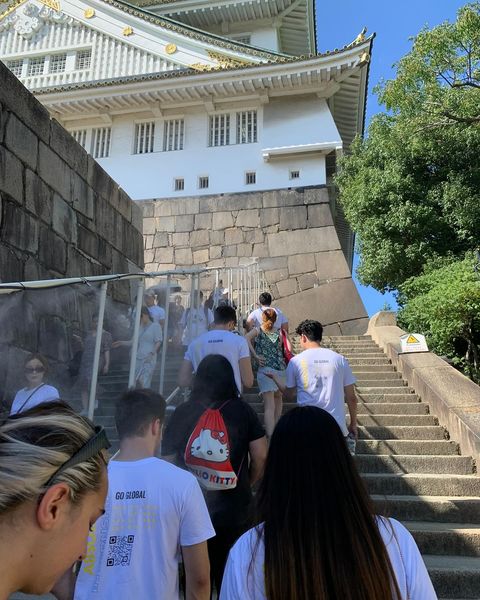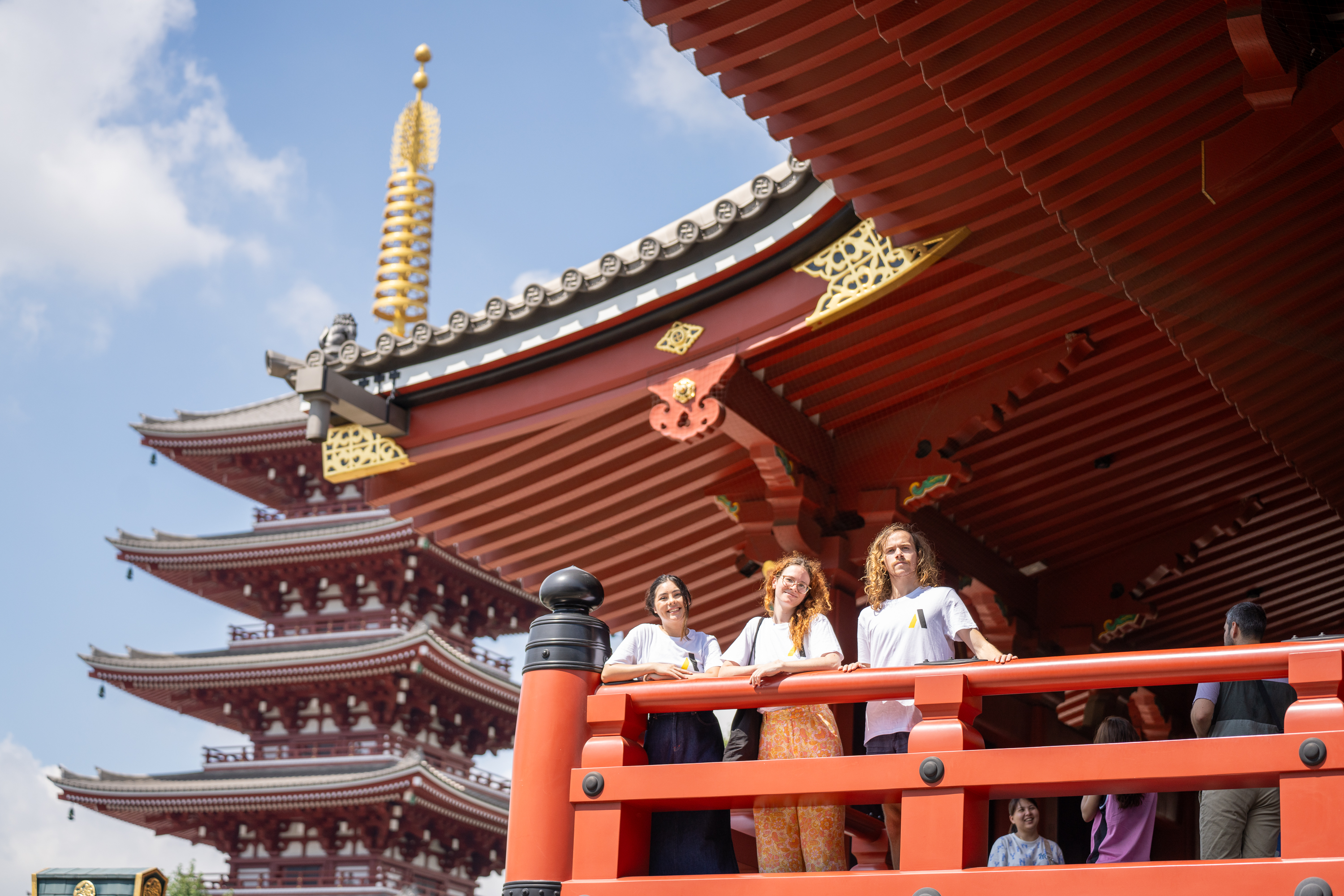
14 May 10 Things to Know About Japanese Culture Before Interning in Tokyo
Table of Contents
Japan, a country steeped in centuries of rich culture, is an alluring destination for college students seeking internships.
Tokyo, as the largest metropolis and top economic hub, draws young professionals like moths to a flame.
But before you hop on that plane, you need to take some time to understand the intricacies of Japanese culture.
Here are 10 valuable insights to pay attention to before you start interning in Tokyo.
Whether you’re studying religion or business, graphic design or law, there are a few things you should know about Japanese culture before you get there. Understanding these nuances can make or break your time overseas – and underscore your professional success.
1. You Need to Be Punctual
In Japan, punctuality isn’t just a habit – it’s a way of life. In Japanese culture, being on time means being fifteen minutes early. This is a sign of respect for the people you are going to meet and the opportunities you have been given.
If your working hours are 9 to 5, expect that as a bare minimum. Overtime, while not officially mandatory, is an ingrained habit in the Japanese corporate work culture. Leaving before your boss is a subtle faux pas that may lead to being labeled “disrespectful” or “uncommitted.”
2. Learn Some Japanese

While English may be the lingua franca of the business world, knowing a few phrases in Japanese can go a long way. It shows your willingness to bridge the cultural divide and can lead to more meaningful interactions.
Not all internships provide extensive language training, so take the initiative to learn common Japanese phrases. Start with asking “how do you say this?” in Japanese, and you’ll be surprised at how eager your colleagues are to help you learn.
3.The Number Four is Hugely Unlucky
In Japanese, the number four is pronounced ‘shi’, which is also used for the word death. This association with mortality makes the number taboo, and it is often skipped in numbering as well as room assignments.
Be mindful not to use the number four inadvertently, especially during business dealings. This might involve seating arrangements at a meeting, the number of gifts offered, or even the number of people attending.
4. You Shouldn’t Let Your Coworkers Down
Saying ‘yes’ is the norm, even when it’s a ‘no’ in your heart. This practice, often referred to as ‘Uchi-soto’, maintains harmony and face within the team and with customers.
‘Hai’, meaning yes, is your best friend in any work conversation. Don’t be afraid to use this word often. However, understanding when a ‘yes’ may mean a ‘no’ can take some getting used to.
5. Japanese Trains Are Obsessively On Time
If you’ve heard of the Japanese train system, you’ve likely heard of its precise and near-flawless operation. Delays are rare and close to unheard of, making it a hallmark of punctuality.
Learn the local train system by heart. You don’t want to be the reason for the office-wide apology because of a delayed train. Timetables are strictly followed, so plan your commutes to the second.
6. Everyone Has Their Own Seal
In Japan, signing with a pen is secondary to the usage of a ‘hanko’, or a personal seal. It carries the weight of identity and is used in everything from business contracts to bank documents.
While not compulsory for foreign interns, it’s a good idea to understand and carry your own hanko when appropriate. Unique to each individual, a hanko symbolizes personal responsibility and is used with utmost care.
7. Get Good at Bowing
A traditional form of greeting and showing respect, bows are a must in formal Japanese interactions. The angle and duration of the bow convey the level of respect and hierarchy.
Practice the art of bowing, understanding that a deeper bow is required for profound gratitude or apology. Do not underestimate its importance in Japanese business etiquette; it speaks volumes without a word.
8. You Need to Get Good at Introducing Yourself
Proper self-introduction is a vital first step in building relationships and can set the tone for your entire internship experience. A clear, concise introduction is key.
Always offer and receive business cards with both hands. Take a moment to study the card; this is seen as a sign of respect. It’s a small yet significant gesture that shows you care about the person and the interaction.
9. Show Respect in Small, Important Ways
Japan is a country that thrives on mutual respect and understanding – it’s the little things that count.
Be mindful to follow the unwritten rules of respect in Japan, from the way you dress to the way you eat and behave in both social and professional settings. Even something as simple as not blowing your nose in public or slamming taxi doors makes a big difference.
10. Gift Giving is Common Practice
Giving and receiving gifts is a common practice in Japan, and it is often more about the gesture than the value. It’s a way to show appreciation and to express social feelings.
When interning in Japan, be prepared to give and receive gifts thoughtfully. The act of giving is an opportunity to express gratitude and build rapport with your peers and supervisors.
How to Land an Internship in Tokyo
Securing an internship in Tokyo is a competitive affair. Take proactive steps to stand out, from polishing your resume to preparing for any potential cultural sensitivity.
Highlight your passion for Japanese culture and the specific industry you’re aiming for. Language skills, cultural experiences, and adaptability are key assets in landing that dream internship.
Finding the best internship in Tokyo starts with a conversation with Absolute Internship. Here, you’ll be able to explore dozens of different internship opportunities that will give you the experience you need to succeed in Japan (and beyond).
And once you’re there? You’re in luck. An internship in Tokyo is a significant opportunity to enrich your personal and professional growth.
By familiarizing yourself with these cultural keystone practices, you will not only blend in with the locals but also create a positive and lasting impression.
Approach your time in Tokyo with an open mind, a desire to learn, and a humble readiness to adapt. The rewards of such an immersive experience will undoubtedly extend far beyond the duration of your internship.


No Comments